Reading: Juan Tallón, Obra maestra (2022).
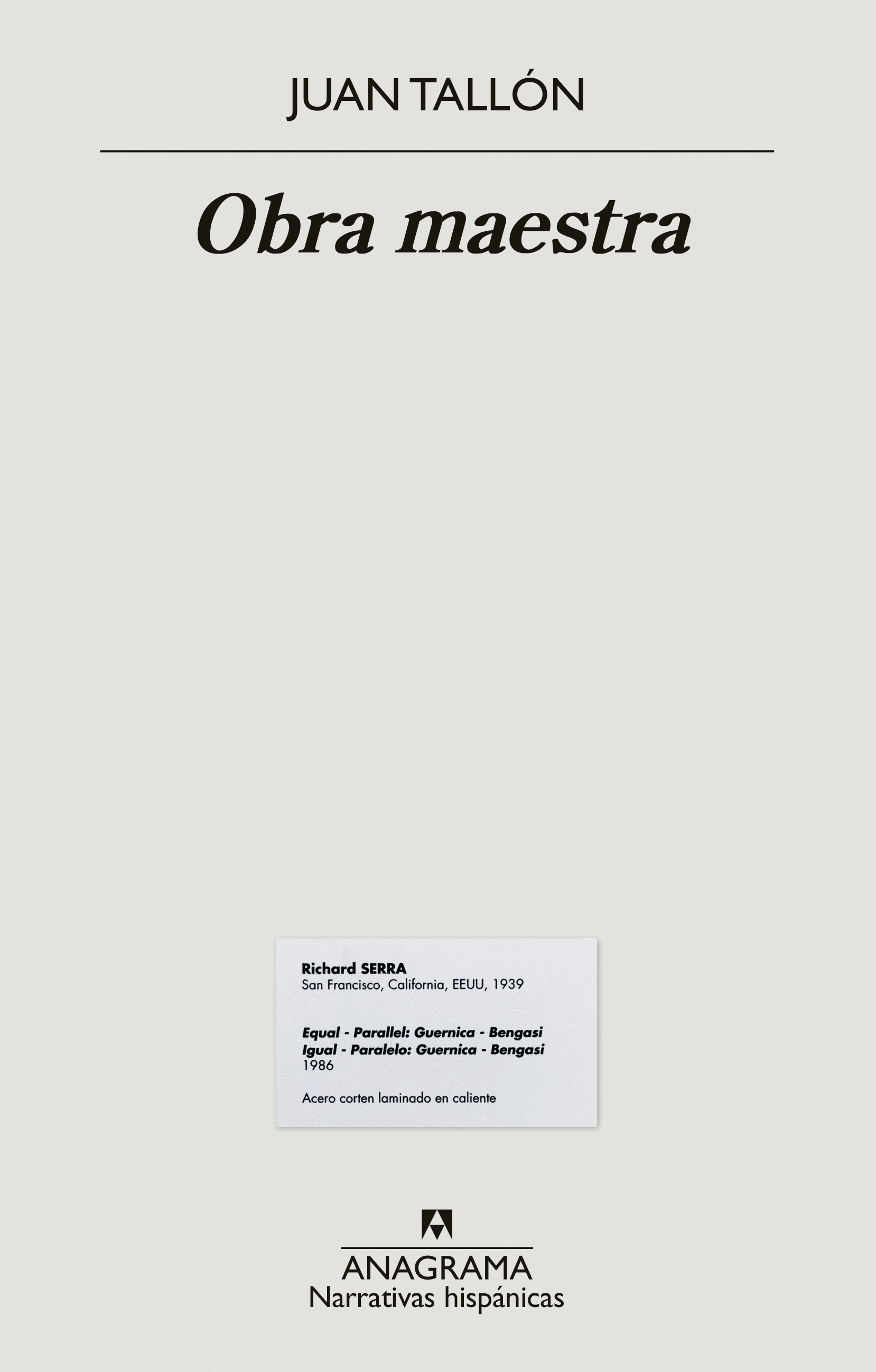
Reading: Juan Tallón, Obra maestra (2022).

Arjun Appadurai, Stop Weaponizing History. On presentism, pastism and the traces of the future.
It is no wonder that the hills are alive with the sound of presentism. Absent a serious space for reflection, debate, and deliberation in or on the actually existing present, it becomes easy to claim that my history is bigger than yours, or more ethically relevant, or more marginalized. In this weaponized sense everyone is in the history business, and it is only in the relative calm of graduate programs, annual meetings, journal submissions, and the recruitment of professional historians that the soothing hum of sources, chronologies, periods, and methods can still be heard.
James P. Johnson, Harlem Symphony: 3. Night Club.
Mental note: recommend Patrick Radden Keefe’s Empire of Pain to graduate students and, in fact, to anyone dealing with complicated writing. The book combines a scientific topic, tons of data, very intricate politics and legal stuff, complicated threads… And yet it is all explained so clearly–as if it was so simple. Even if it is not a scholarly book, it could be a great source of inspiration for academic writing.
Very honored to have been invited to give a keynote lecture at the Humanities Fall Conference: Ciencia y Caridad 科学与慈善, organized by Duke Kunshan University’s Humanities Research Center.
It was my first in person conference after the pandemic and I enjoyed two really stimulating days among great colleagues and students. The conference was based on Picasso’s Ciencia y Caridad. The painting’s allegorical potential spurred excellent presentations and discussions about science, the humanities, and the global challenges that lie ahead.

A few days ago, I talked about Secondhand China with Suvi Rautio. Our chat has just been released in New Books in Chinese Studies. As an enthusiastic subscriber of the New Books Network (a terrific resource I always recommend to students and colleagues) I am so glad to be now an episode in the channel!
Week that feels truly post-pandemic. Today, I presented Regresar a China in Madrid. I enjoyed a wonderful discussion with a group of superb readers. On Friday, my first face-to-face conference after the pandemic.

Reading: Patrick Radden Keefe, Empire of Pain (2021)

Very grateful to Sílvia Fustegueres for her interview–just published today to celebrate International Translation Day!
Back to teaching very soon. Going over syllabi, class notes, and teaching logistics. And gathering drive and stamina to wrangle time for writing and research during a busier weeks. Perfect timing for Rebecca Schuman’s reminders in 3 Practical Approaches to Writing While Teaching.
Pankaj Mishra’s book recommendations. Very happy to find references to the English translations of Mercè Rodoreda’s La plaça del diamant (as a book hardly any reader in English has heard of) and Josep Pla’s El quadern gris (as “a hypnotic record of the author’s life in the Catalan provinces and Barcelona in the first half of the 20th century, and I found myself wishing this very long book to go on forever”).
More on reading around. I find this interview to the great writer and historian Robert Bickers. Question: “What’s the best advice you ever got about history?” Answer: “Read, read, read, read, read, read, read. And read anything and everything.”
Not yet fully adjusted to this new phase between projects. Feeling quite anxious, in fact. I search for advice in a senior colleague I admire very much. He says he loves this phase and hopes I enjoy it too. “It’s a parenthesis of pure potential, when you can read around and wait for some kind of lightning to strike.” I do my best to absorve this good piece of wisdom. But: what if there is no lightning?
In a letter to his wife on January 15, 1918, Victor Segalen writes what could have been written by one of those academics who became very productive during the lockdown…
Je me suis fêté hier ma quarantaine, que je porte, ma foi, fort bien… J’ai trois drames, dix romans, quatre essais, deux théories du monde, une poétique, une exotique, une esthétique, un traité des Au-delà, une vingtaine d’ouvrages inclassables, et quatre mille soixante-trois articles de deux cents à deux mille lignes à donner avant de prendre ma vraie retraite. Après quoi, je préparerai une édition entièrement contradictoire de mes oeuvres–afin que l’on choisisse.
Reading: Frédéric Ciriez & Romain Lamy, Frantz Fanon (La Découverte, 2020).
Summer break. Having read this last year, I turn my out-of-office reply and promise myself that this year I will do as say in the automatic message: check email only sporadically and reply upon my return.
I sort of do it. I make only one exception and reply an email from a colleague I admire. He has asked me to send him something and I basically tell him I will have to deal with that in early September, etc. He writes back: “Thank you so much, and safe travels! Vacation is important!”
Mental note: we should make the importance of vacation more explicit–especially to young colleagues.
Marin Marais, L’Arabesque (4ème livre de Pièces de viole).
Lunch with my PhD student–the one who recently filed and then got a decent job. So happy for her!
She confessed that the best thing I ever did during my mentorship was to share with her very early drafts of my own manuscripts–rough, messy, full of nonsensical ideas.
Finishing up a translation project that has been (intermittently) in the making for quite some time now. Definitely a very different kind of intellectual gymnastics–compared to the usual academic writing. I like how they supplement each other.
Reading: Jhumpa Lahiri, Whereabouts (2018/2021).

A PhD student files and gets a decent job: that this is spectacular news (and not just a normal concatenation of events) tells about how difficult it is to become a professional academic nowadays.
Dilemma: Should we then keep on training young researchers (help them select a dissertation topic, dialogue with the field, become generous and dedicated scholars) if there will be almost no decent jobs after they file? Would any other profession do that–train someone for a non-existent job?
I have also received very warm comments about the Acknowledgements section. Some colleagues have told me that they will share it with Anglophone friends. One even told me he will circulate it in a course he teaches on scholarly publishing for graduate students, who (in his program) are almost never first-language English speakers. Most interesting: a British colleague suggested that it may not be (only) a question of Anglophone speakerism but (also) about the parochialism of North American academia–as even the “other” Anglophones find their work outside the canon. I am so happy my reflections can help making these issues more visible.
One month since Secondhand China was officially released. It has been a joy to share the book with colleagues. I have also shared with family and non-academic friends a FAQ document to “explain” the whole book’s project in Catalan language and without scholarly jargon. I must confess I was a bit reluctant to share this at first. But from their responses I see that it was really worthwhile!
“Goodbye Red” by Ben Locket, from Revolting Rhymes soundtrack (2016).
Thanks to Barnes’s work I come across this letter from Flaubert to Turgenev in 1872:
J’ai toujours tâché de vivre dans une tour d’ivoire; mais une maré de merde en bat les murs, à la faire crouler…
Reading: Julian Barnes, Flaubert’s Parrot (1984)

Glad to have read Ta-wei Chi’s The Membranes... as part of my duties as PhD supervisor!
(Strange feeling, though: to supervise a dissertation about a fellow graduate student back in those times… Makes me feel old!)

The best and most enthusiastic reactions are coming from the home front…!


Young professor arrives at a new department. No one really knows him: this is an old department in one of the old disciplines in the humanities and this new guy works on China stuff. They do not care much about the topic and they do not pay much attention to him. Of course, he is assigned to teach the first-year introductory courses no one wants to teach. The new professor does not complain: he does his job and keeps a low profile.
Four years later, the new professor (not so new by then) is finally invited to present his research at one of the monthly brown bag talks organized by the department. These seminars are advertised widely and are open to all the academic community, but they usually gather about 8-10 old faculty members.
The day the new professor gives his talk, more than 50 students show up too.
Reading: Margaret Atwood, The Handmaid’s Tale (1985).
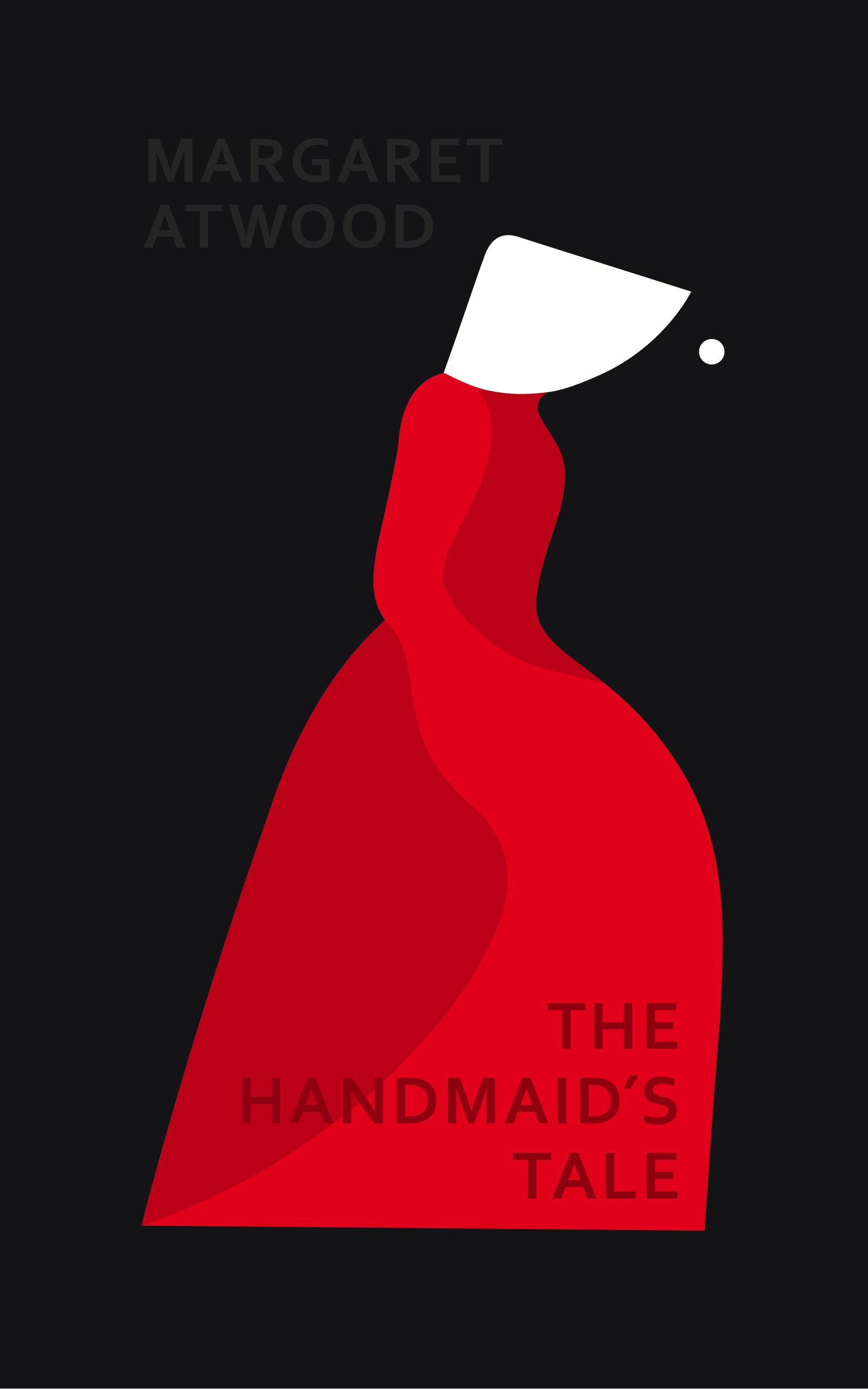
David Bromwich interviewed by Len Gutkin. At one point, Bromwich says:
I know of faculty, both here and at other universities, who are major personalities on Twitter. They tweet links to articles, and they tweet instant reactions, off the cuff, sometimes witty and sometimes not. And there is some demagoguing. On occasion, they are compelled by an inward or outward pressure to delete their tweets.
To me, this simply goes against the vocation of being a scholar. Let’s not be too high and mighty, but still — we are understood to be people who deliberate, who take some time to get at what we believe to be the truth. The whole ethic of snap reactions goes against that. In the long run, it’s going to reduce the prestige of professors. It makes us more like everyone else, which a lot of academics have wanted to be all along. That’s part of the problem — the idea that we should try to erase the distinctions that separate university life, academic life, from society.
Bromwich’s views were taken (in Twitter, of course) as antidemocratic, etc. But I think these criticisms miss Bromwich’s larger point. I agree with Gutkin’s later remark:
But academics are not like everyone else — or at any rate, academe is not like the other professions. The conviction that scholarship is in some sense an autonomous sphere is probably not one that scholars can do without, at least not if they want to retain the foundational privileges of academic freedom and the tenure system. Those institutions are oriented toward a vocational ideal of the academy; they do not exist in other professions, because they would make no sense there. Corporate lawyers might be rich, but they are bound by golden handcuffs. Dentists don’t have dental freedom. To dissent from Bromwich’s insistence that academic life is different from other kinds of professional life — to imagine that that conviction is simple snobbery — is to abandon academic freedom in any of its senses. (…) When Bromwich refers to the threatened “prestige of professors,” his concern is not that they won’t be accepted to the country club. His concern, precisely, is that they won’t continue to be granted, by the wider society, the freedom to do their jobs.
Today I attended a superb presentation of a superb book written by a superb scholar. Albert Galvany, Figuras de la excepción en la China antigua. Chapeau!
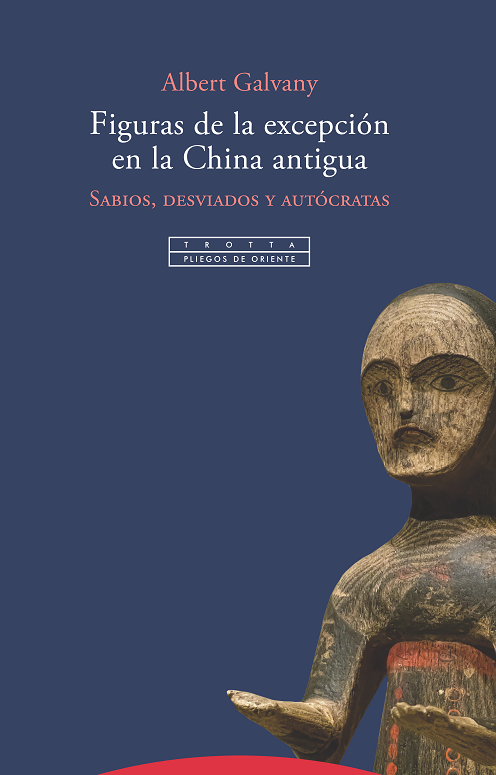
Cate Denial, Clarissa Sorensen-Unruh, and Elizabeth A. Lehfeldt, After the Great Pivot Should Come the Great Pause.
We need time to read. The cognitive load of the pandemic, with its attendant stresses in our work and nonwork lives, has made the simple act of reading a considerable challenge for many faculty and staff members. Being able to make reading a priority — to immerse ourselves in the latest works in our scholarly and professional fields — would have a profound effect on our ability to rejuvenate our research and development agendas.
Very interesting reference found in Dora Zang’s Is There a Future for Literary Studies? Zang mentions Rachel Sagner Buurma and Laura Heffernan’s The Teaching Archive: A New History for Literary Study (The University of Chicago Press, 2020). I quote:
Examining materials ranging from T.S. Eliot’s lecture notes from his classes at an extension school for working adults to Simon Ortiz’s efforts to establish a Native American-studies curriculum at the College of Marin, Buurma and Heffernan show that many of the key methodological developments in literary studies over the 20th century have developed in and through the classroom. This startling claim counters the familiar idea that the discipline’s theories and practices are pioneered by scholars at a handful of elite institutions “only later to ‘trickle down,’” as Buurma and Heffernan put it, “to non-elite institutions, students, and teachers.” It also challenges classic disciplinary histories like those by Gerald Graff and John Guillory, which characterize the history of literary studies as a series of “method wars,” whether between belletrists and philologists at the turn of the 20th century, or formalists and historicists towards that century’s end.
James Williams, Stand Out of Our Light: Freedom and Resistance in the Attention Economy.
For me, the most interesting thing in Williams’ book is how he moves the criticism of informational technologies away from the typical individual spots and pays attention to the larger (and far more dangerous) social and political consequences.
We face great challenges today across the full stack of human life: at planetary, societal, organizational, and individual levels. Success in surmounting these challenges requires that we give the right sort of attention to the right sort of things. A major function, if not the primary purpose, of information technology should be to advance this end.
Yet for all its informational benefits, the rapid proliferation of digital technologies has compromised attention, in this wide sense, and produced a suite of cognitive-behavioral externalities that we are still only beginning to understand and mitigate. The enveloping of human life by information technologies has resulted in an informational environment whose dynamics the global persuasion industry has quickly come to dominate, and, in a virtually unbounded manner, has harnessed to engineer unprecedented advances in techniques of measurement, testing, automation, and persuasive design. The process continues apace, yet already we find ourselves entrusting enormous portions of our waking lives to technologies that compete with one another to maximize their share of our lives, and, indeed, to grow the stock of life that’s available for them to capture.
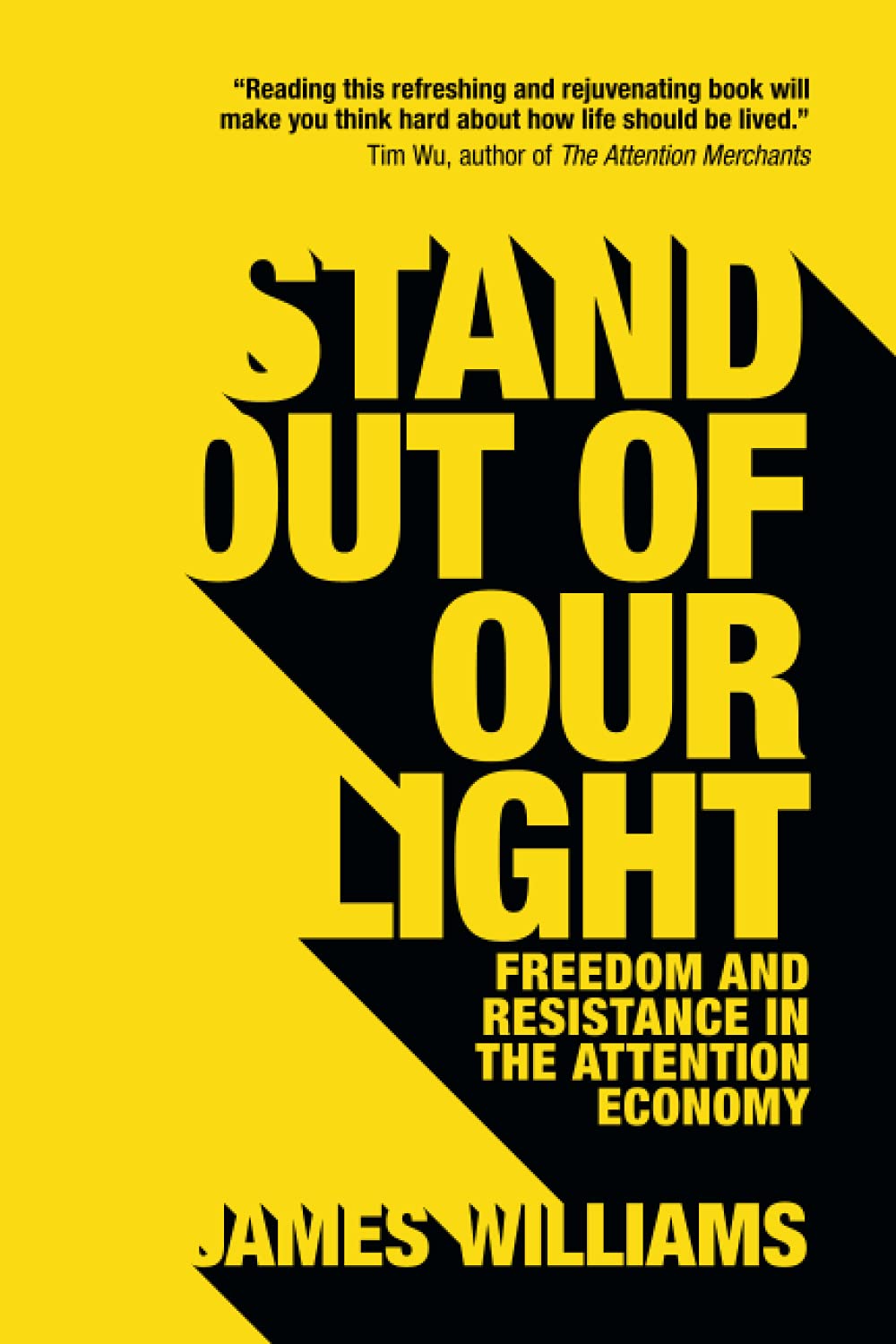
March turned into April that turned into May. Already May! Another academic year, almost over. Joe Hisaishi, Merry-Go-Round of Life (from Howl’s Moving Castle).
Kevin R. McClure and Alisa Hicklin Fryar, The Great Faculty Disengagement. Indeed:
Faculty members, as unhappy as many of them are, are largely staying put. What has changed is how they approach their jobs. (…) For them, the Great Resignation looks different. We would describe it as disengagement. They are withdrawing from certain aspects of the job or, on a more emotional level, from the institution itself. Faculty members are not walking away in droves, but they are waving goodbye to norms and systems that prevailed in the past. They are still teaching their courses, supporting students, and trying to keep up with basic tasks. But connections to the institution have been frayed. The work is getting done, but there isn’t much spark to it.

Reading: Emmanuel Carrère, Yoga (2020).

Very honored to have shared a very interesting conversation on the relations between China and Spain with Carmen Cano, Jordi Quero and a bunch of excellent students. The roundtable was part of Current Issues in Spanish Foreign Policy, a course organized by the Centre for International Studies and the Spanish Ministry of Foreign Affairs.

End of a very stimulating week: “Universal versus Particular in the 20th century”, an online international workshop on the interactions between the universal and the particular in the global context. It was organized by our ALTER colleague Etienne Lock, who gathered a wonderful, truly interdisciplinary set of presenters.
In my concluding remarks, I highlighted a few ideas that, I think, were shared by most of the presentations: language as a political issue, the productivity of truly interdisciplinary conversations, the scalability of these discussions, the importance of ethics in approaching these issues, and teaching as a much-needed substantiation of more abstract reflections.
Very productive ALTER seminar today: “Discussing Scale, Taphonomies and Circulation in Global History”, organized by our colleague Mònica Ginés-Blasi and with Christian G. De Vito (BCDSS, University of Bonn) as special guest.
So happy to be able to visit a few RCR’s projects in situ again. One of my favorites: Tossols Basil Athletics Track & Stadium:

Going over the mail that arrived at my office during the lockdown, etc., and that I ended up receiving only quite recently. For example, past issues of the JAS. In vol. 79, no. 4, November 2020, interesting reflections by Gail Hershatter, Tamara Loos and Geeta Patel on the afterlives of Judith Butler’s Gender Trouble in Asian Studies. Followed by a wonderful reply by Butler herself–which includes an interesting personal reflection on translation:
Nearly thirty-one years after the publication of Gender Trouble, I no longer think of translation as a secondary act. In fact, the category of gender is unthinkable without translation. For too long, those working in Euro-American frameworks have assumed that whatever is said about gender is true if it is conceptually clear within those vocabularies and grammars. They have (we have) failed to note that gender itself is an English coinage, emerging in the 1950s, that does not always travel well, and which meets resistance for reasons that are not always suspect. If a theory of gender seeks to be generalizable, then it has to pass through translation. (…) There can be not theory of gender without translation, and translation is the condition for a global understanding of gender and a differentiated sense of gender studies. (…) A text like Gender Trouble has to lose its authority to still do any work in the world. Torn up and rightly plundered, it produces still, I hope, some parts that can be reappropriated for a use that I could not have imagined. This is perhaps the greatest gift, to find that what one has put into the world has a life of its own, enters the life of others and is thus given life in ways that could not have been imagined.
End of the quarter, book sent to print, relieved from a quite demanding academic service. Time to reset. Valentin Silvestrov, Two Dialogues with Postscript: III. Morning Serenade.
Reading: Ian McEwan, Machines Like Me (2019).
A good contribution to what has already become a genre–China scholars trying to cope with a new context for dealing with China: Todd Hall (University of Oxford) hosts Biao Xiang (Max Planck Institute for Social Anthropology), Ingrid d’Hooghe (Leiden Asia Centre) and David Ownby (Université de Montréal): Understanding China in Uncertain Times, organized by the University of Oxford China Centre.
Aaron Basko, Have We Gotten Student Success Completely Backward?, on “instead of fretting over why their students might leave, colleges need to make sure each one has a good reason to stay.”
A colleague of mine, Eric Baldwin, vice president for student development at the University of Lynchburg, summarized it like this: “Gallup shows us that students need two basic things to feel like they belong. They need to know someone on campus has their back, and they need a chance to do something really meaningful to them at least once a week.”
Erik Gilbert, College Finances Are Being Eaten From the Inside. Interesting piece on “how online-course contractors exploit vulnerable institutions.”
Found out that Jim Svejda retires after 43 years at Classical KUSC. I’ve been listening to his shows for about half that time. Given the time difference, I used to catch half of The Evening Program as I started my work day. Will miss his commentaries–and his voice and (dramatic) pauses.
Busy with quite surreal institutional procedures. The irony: all this is aimed at improving research activity. What can we do? I am also tempted to shout that birds aren’t real.
Very interesting conversation between Jaume Subirana and Xènia Dyakonova on writing and translation at Diàlegs Humanístics UPF. Spectacular collective goose bumps after Jaume recites his Catalan translation of W. B. Yeats’s An Irish Airman Foresees His Death.
Reading: Borja Bagunyà, Els angles morts (2021).

Another chain of happy coincidences. I am introduced to the professional indexer who will work on Secondhand China. Then I listen to this podcast and find out about this sensational book about indexes: Dennis Duncan, Index, A History of the. Then I find out that the indexer who will index my book has, in fact, reviewed Ducan’s book for the The Washington Post!

Interesting ALTER seminar with María Íñigo and Roger Sansi. They share with us their early ideas for a great project on the restitution of colonial objects. They should definitely publish an ethnography of the whole process: all the difficulties they are encountering to include non-EU partners illustrate very well how the decolonial project is very difficult to put into practice within our current academic and institutional structures…
Later, we circulate this text. As one of my colleagues mentioned, it could work as a creative plan B should everything else fail…
Secondhand China won’t be out until June, but it is now possible to preorder the paperback edition chez Northwestern University Press, with a 25% discount using the code NUP2022 at checkout.

A happy coincidence: I am teaching the Zhuangzi these weeks and, coincidentally, I just read about this new publication: Neil Vallelly, Futilitarianism: Neoliberalism and the Production of Uselessness.

Stuart Hall, Through the Prism of an Intellectual Life. Brilliant and inspiring video: Hall in a lecture in 2004 about the relationship between biography and intellectual work.
One of the perplexities about doing intellectual work is that, of course, to be any sort of intellectual is to attempt to raise oneself’s reflexiveness to the highest maximum point of intensity.
It’s that time of the year again: receiving PhD applications and getting ready to assess them as a member of my department’s reviewing committee.
One more year I think about the fortress besieged effect: PhD applicants want to pursue a doctoral degree to get into academia, while tenured faculty want to get out of it.
Recent article on the former: Naomi Kanakia, Professors, Don’t Delude Yourselves: Your graduate students aren’t aiming for nonacademic jobs. Recent article on the latter: William Pannapacker, Tenured, Trapped, and Miserable in the Humanities: Why are so many tenured professors unhappy with their jobs yet unable to change careers?
Reading: Rafael Chirbes, Diarios (2021).

Great ALTER seminar session with Jordi Serrano-Muñoz. He shared with us his thoughts on his new book: East Asia, Latin America, and the Decolonization of Transpacific Studies, co-edited with Chiara Olivieri.
Very true: mailrooms, hallways, stairwells, coffeemakers, cantines, etc., are real academic danger zones–informal minefields. Open-floor offices (very à la page nowadays, even at universities…) can complicate things even more.
January, still! A very intense rentrée indeed. Rachmaninov, Piano Concerto No. 3, Finale (Alla breve).
Very honored to have participated in the conference The politics of Sino-Western relations, organized under the Project for Peaceful Competition. A very stimulating discussion of humanistic approaches and social sciences comments.
My paper was on the portraits of China in Western literature. It summarized some aspects covered in Secondhand China. Happy to share this with such a distinguished audience.
First proofs are here! Revising this first delivery from the typesetter. Enjoying every second of it.
Back from the holidays. Looking forward to 3-4 crazy weeks packed with events, committments, dissertation committees of all sorts, and deadlines.
Reading. William Finnegan, Barbarian Days (2015).

Felix Mendelssohn, The Hebrides Overture, “Fingal’s Cave”.
This is what I would call teaching innovation. Isabella Grullón Paz, Professor Put Clues to a Cash Prize in His Syllabus. No One Noticed.

It was a pleasure to share my thoughts on doing research in Asian studies in Spain with great colleagues such as Antonio J. Domenech and Pablo A. Rodríguez-Merino in a roundtable organized by Raúl Ramírez at Universidad Rey Juan Carlos. We met back in October and the video has just been made available here.
From Maggie Doherty, The Quiet Crisis of Parents on the Tenure Track:
The male academics I spoke to were highly involved parents who had used family leave to take care of children. While they appreciated that colleagues tended to be supportive of their decision to have kids — something a couple of them chalked up to gender privilege — some of them were frustrated that these same colleagues had assumed that they wouldn’t have any trouble balancing work and parenthood. Saul Zaritt, an assistant professor at Harvard with appointments in comparative literature and Near Eastern languages and civilizations, said that the message he got from older male colleagues who had been “particularly productive” on leave was that “it was easy to hold the baby and write the book.” But for Zaritt and other male academics who split child care evenly with their partners, it’s been far from easy. A child is “an enormous impediment to productivity,” said Parker, the assistant professor at Brown. The men I interviewed had many of the same worries about publishing and tenure as their female counterparts.
Reading: Philip Roth, Exit Ghost (2007).

Kevin Carey, The Great Master’s-Degree Swindle, on “how colleges are making a killing selling dubious credentials to naïve students.” Reading the piece from a European perspective, the cost is even more exorbitant. Poignant illustration by Jason Hoffman.

Just read Murakami’s conversations with Seiji Ozawa, Absolutely on Music, in the Catalan translation by Albert Nolla. I guess I learned more (about music) from Murakami’s interventions than from Ozawa’s… In one of their conversations, they refer to this:
Emily Yeh’s Fraught Times on how “binary thinking and academic un-freedom threaten to foreclose the potential for geographers’ (and others’) research and teaching to make a productive difference toward a livable and dignified planetary future.”
Never a number meant so much to me…
Reading: Per Petterson, Sortir a robar cavalls, trans. Carolina Moreno (2016).
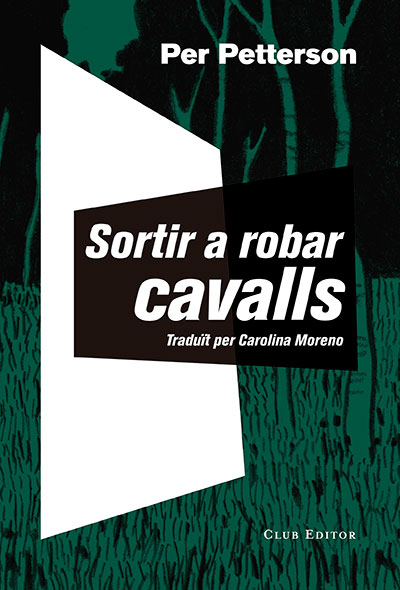
Just found out that Fang Fang’s 武汉封城日记 (her series of blog posts published during the 2020 quarantine in Wuhan) has been translated into Spanish and Catalan from Michael Berry’s English translation. Will keep that in mind as a recent example for those who may object that the ideas I argue in my next book (that covers roughly from 1880 to 1930) do not apply today.
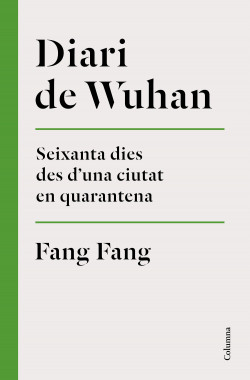
Happy to be back at my alma mater to present Regresar a China to students in East Asian Studies at the Facultat de Traducció i Intepretació, Universitat Autònoma de Barcelona. Heartfelt thanks to my colleagues Blai Guarné and Manuel Pavón for having organized this!
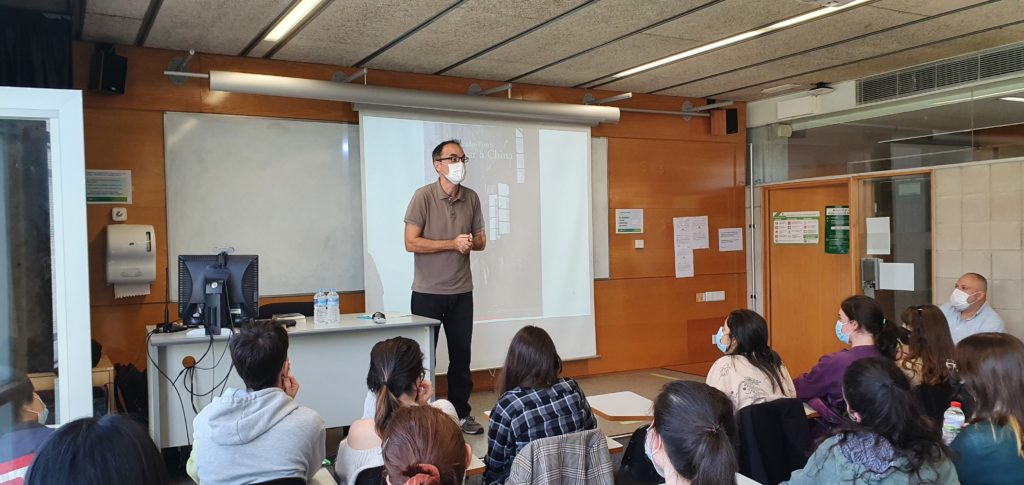
Had our first full-department in-person meeting this week after 19 months. À propos, one of the best summaries of the kind of questions we should face in the near future: Allison M. Vaillancourt, 5 Questions to Help You Develop Your Remote-Work Policy — for Now.
Agamben on Nietzsche via Traverso:
Those who are truly contemporary, who truly belong to their time, are those who neither perfectly coincide with it nor adjust themselves to its demands. They are thus in this sense irrelevant [inattuale]. But precisely because of this condition, precisely through this disconnection and this anachronism, they are more capable than others of perceiving and grasping their own time.
Working on the first draft of an article. Having worked almost exclusively on the book project for so long, I feel out of place, out of pace. Like switching from marathon to 100 meters.
A bit relieved when looking at Fyodor Dostoevsky’s manuscript draft for The Brothers Karamazov:

Reading: Sally Rooney, Normal People (2018).
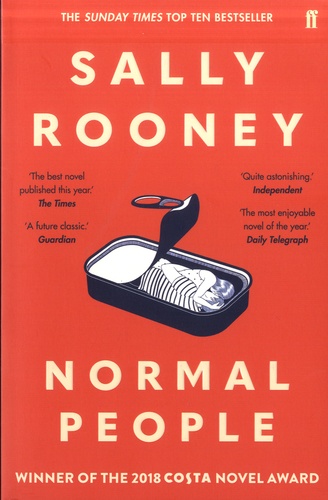
Very honored to be part of the panel of judges for the III Marcela de Juan Chinese Translation Prize. As in previous editions, I learned (a lot!) from fellow jury members.
This edition’s winner is La muerte del sol: Belén Cuadra‘s superb translation of Yan Lianke’s 日熄, published by Automática Editorial.

Beethoven, Quintet for Piano and Winds in E-Flat Major, Op. 16. Finally getting into the pace of things.
New academic year, transition to a new normal, back to a busy schedule with all sorts of meetings. Looking ahead, the academic calendar does not look good: early September to late July.
Quick message to administrators: Sarah Rose Cavanagh, Your Most Important Resource Is Eyeing the Door:
Some of the ideas for rejiggering the academic calendar are interesting. (…) But we need breaks to refresh, to renew, and to catch up on work. Professors have come to rely on official breaks for this rest since, unlike most professionals, we can’t take vacations for a week of our choosing during the semester. (…) If you mess with breaks, you also cut away at one of the few perks that an academic life has over other, more lucrative professions — namely, the flexibility of our work days. Teaching, scholarship, and service require long hours of effort. The benefit is that you may choose which hours you work and that you get scheduled breaks in between marathon stretches. As we transition to a new normal, we need to restore breaks during the academic year.
Enjoying Enzo Traverso’s very lucid Passés singuliers: Le “je” dans l’écriture de l’histoire. Loved the (ironic) personal preface to the Catalan edition (wonderful translation by Gustau Muñoz, by the way). Traverso narrates the frustrated trip to a conference in Spain that was at the origin of the book–his flight from Ithaca to Newark got delayed and then cancelled, etc. (My also ironic and personal immediate reaction was relief: it was wise, after all, to drive up to Ithaca and then back down to Newark on both our visits to Cornell…)
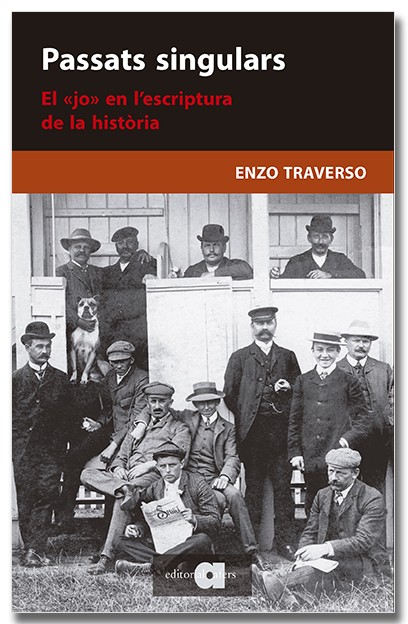
Very true: Jefferson Pooley, MIT and Harvard Have Sold Higher Education’s Future: Handing over edX to a private company is a gross betrayal.
That industry is among the most profitable in the world, in part because academics write and review for free.
End of summer vacation. End of out-of-office reply as in Shit Academics Say:
I am currently away from the office and have intermittent access to email. If your email is not urgent I will in all likelihood still reply within 10 minutes due to ineffective self-regulation and an inability to maintain work-life balance.
Reading: Jost de Vries, The Republic (2019).

What a fabulous break from my summer break! My book Regresar a China has just been selected as the Spanish Winner of the 2021 ICAS Book Prize in the Spanish and Portuguese edition!
It is a real honor for me to receive such a prestigious award–especially taking into account the fantastic array of books that were submitted in this edition.
This is a book that has only brought me wonderful news since the moment the book project was welcomed by Ignacio Sierra and the folks at Editorial Trotta. Since then, the joy of seeing one’s work in print has been multiplied by the very kind words I have received from esteemed students and colleagues, old friends, and new readers.
I already expressed my gratitude to some of these people in the acknowledgments section of the book–which can be read (in Spanish) at the bottom of this page. Now I can only add my deepest gratitude to the jury for their very generous assessment of Regresar a China.
And, of course, ICAS and SEPHIS also deserve additional and very special thanks for organizing a multilingual award such as this one. The nine language editions of this prize are a celebration of linguistic richness and give much-needed visibility to the knowledge about Asia that is being generated, published and read all around the world in different languages.
Thank you all!

Quote from Peter Fleming’s Dark Academia:
Scholars are extremely self-motivated and have always been prone to overwork. Since most are driven by an intrinsic commitment to their vocation, it can be difficult to switch off after hours. I know plenty of academics for whom nothing is more relaxing than holidaying on the beach with a dense monograph.
Kari Nixon, The Agony of the Internal Candidate. Nixon is very right indeed: inside hires are unfair to applicants and search committees alike. Her piece shows how the process can be quite complicated and unpleasant for both sides. Precariousness makes the situation even trickier, as it increases strong internal candidates.
On this side of the Mediterranean, this is a new situation too–but, ironically, the other way around. Being an internal hire has traditionally been almost the only way to secure a permanent position. Despite some recent (and modest) changes, it is still the typical way to go. So some internal candidates can actually be quite talented and competitive. Nowadays, though, globalization has pushed universities to, at least, dramatize a certain objectivity and rigor in hiring procedures. And so the contrast sometimes reaches surreal moments.
Gone are the days when departments “publicized” job announcements by posting them on a remote board typically on a Friday evening–and the deadline for applications was on Monday morning. But you can still feel the old Mediterranean flavor when a job profile changes unexpectedly after candidates have already been shortlisted; when an external candidate walks in the interview room and finds members of the selection committee yawning ostensibly; or in public job advertisements with profiles like this one.
I am very honored to have Regresar a China shortlisted for the 2021 ICAS Book Prize in the Spanish and Portuguese edition.
The organizers have kindly invited the book prize candidates to present their work. My heartfelt thanks to SEPHIS and the International Convention of Asia Scholars for this opportunity to share my work–and, particularly, for adding English subtitles to the video!
View this post on Instagram
Don’t know how but this piece written in 2019 by James Shapiro happened to be in one of my tabs: Occupying Shakespeare. A book and a book review that offer a full portrait of a profession and of a whole generation of young scholars.
Reading: Art Spiegelman, Maus (1980-1991).
